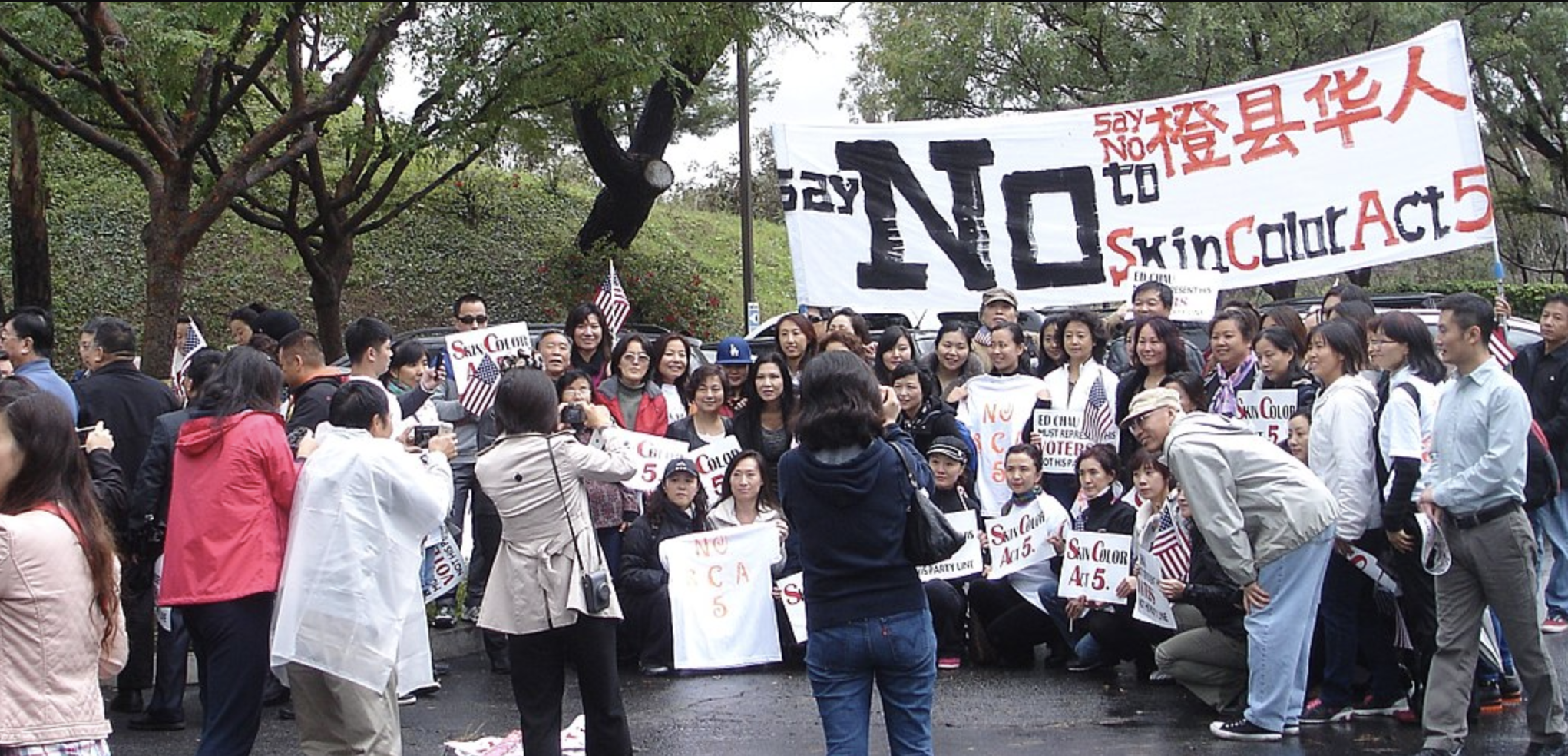Asian-Americans are the fastest-growing racial minority in the United States and are expected to make up 10 percent of the voting population by 2044. Despite this, they have long been out of the picture in political conversations. Just under half of eligible Asian-Americans voted in the 2016 presidential elections—compared to 65 percent of whites—and few politicians engage in the type of basic outreach towards Asian-Americans that might be considered standard for other ethnic groups (e.g. publishing ballots in Asian languages).
In the past five or so years, however, there has been a quiet shift in the Asian-American political landscape: an increase in political participation and activism born out of the mobile app WeChat. The people behind this trend? Mostly conservative voters, they generally hail from mainland China and came to the United States under the 1990 Immigration Act, which opened the door for affluent, educated immigrants. As a cohort, they oppose affirmative action and support more stringent immigration policies. They grew up in a China, which proclaims the strength of the “China dream,” in which a formerly humiliated nation recovers its position on the path to “glory.” As first-generation immigrants, they often feel little of the self-consciousness and solidarity that comes with growing up as a minority in a majority-white country.
To be clear, this WeChat phenomenon refers to only a tiny minority of Americans. Asian-Americans in the United States cannot and should not be represented by Chinese-Americans. In fact, a lack of disaggregation of Asian-American demographic data has historically obscured inequalities between wealthier Asian-Americans (e.g. Chinese- and Korean-Americans) and Asian-Americans who often arrived on American shores as refugees (e.g. Hmong- and Vietnamese-Americans). Still, the proliferation of anti-immigration and anti-affirmative action views among first-generation Chinese-Americans is significant, because the majority of Asian-Americans are Chinese-Americans, and the majority of Chinese-Americans are first-generation immigrants. Furthermore, although there are only around two million first-generation Chinese immigrants, this group holds a disproportionate amount of financial and educational privilege. They are equipped with both the time and money to fight, and in many areas, especially Asian enclaves on the West Coast, their influence has already made a mark.
For instance, in just four years—from 2012 to 2016—support for affirmative action by Asian-Americans dropped 10 percentage points due almost exclusively to a massive decrease in support for the policy by Chinese-Americans specifically (78 percent to 41 percent). This is a stunning figure considering that most second- and third-generation Chinese immigrants, pejoratively nicknamed “Chinatown Chinese,” generally support liberal policies, including affirmative action; so this 10 percent decrease in support among Asian-Americans really reflects a decrease in support among first-generation Chinese-Americans.
Another example: WeChat activists were in large part responsible for the defeat of California’s SCA5, which would have introduced affirmative action for University of California universities. Specifically, The Orange Club, a WeChat group for Chinese-Americans in Orange County, was founded to unleash a firestorm campaign of meetings and fliers to convince Democratic assemblymen to break with their party and oppose SCA5. Eventually, they succeeded and turned Assemblyman Ed Chau to oppose affirmative action for UC schools. That same club endorsed the successful campaigns of four new Republican candidates to the State Legislature (none incumbents) an impressive feat in a California where the Republican Party has essentially “withered.” More recently, they and the Silicon Valley Chinese Association (SVCA) helped elect Ling Ling Chang to the California State Senate, thus overturning Sacramento’s Democratic supermajority. The SVCA also secured the re-election of Republican Vincent Fong to California’s State Assembly, and its founder, Alex Chen, previously campaigned heavily for Donald Trump despite being unable to vote (because he is not a citizen.) On the East Coast, Zhenya Li formed the Maryland Chinese American Network (MD-CAN) for the explicit purpose of opposing sanctuary laws within Maryland, joining many other legal immigrants. Ultimately, Li succeeded; MD-CAN a statewide proposal for sanctuary and another proposal in a nearby county to be struck down. In 2016, Chinese Americans for Trump, another group of primarily first-generation immigrants, used WeChat to pay for pro-Trump messaging on billboards and aerial banners in more than a dozen states and 32 cities.
However surprising these rapid changes may be, in many ways the influence of WeChat makes sense. It is impossible to understate the enormous influence of WeChat in mainland China, where it is the default platform for instant messaging, social media, and mobile payments. The app is a massive ecosystem within which you can both buy street food from an alleyway vendor and pay your rent. It only makes sense that when Chinese-born Chinese immigrate to the United States, they continue to rely upon the platform. Thus, WeChat is a key player in the political activism of Chinese-American immigrants, especially because many of these immigrants find it difficult to engage in English-language coverage of political events due to the language barrier. Furthermore, many of the core issues driving English-language political debates, such as the job market, are relatively unimportant to this demographic. Other issues, like census data disaggregation, are much more important to Chinese-Americans who fear that disaggregation will lead to affirmative action favoring other Asian-American groups underrepresented in higher education.
On a national scale, Chinese-American voters are still barely significant: They make up less than 2 percent of the national population. But their growing participation in politics has shown that they are not a demographic that should be ignored anymore, especially in areas like California, Massachusetts, and Washington DC, which are home to large Chinese-American populations.
